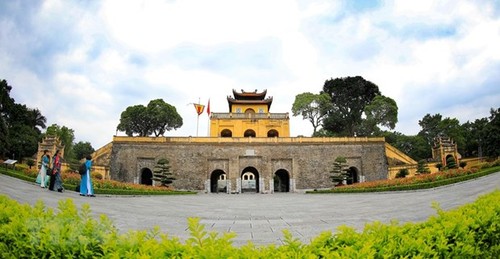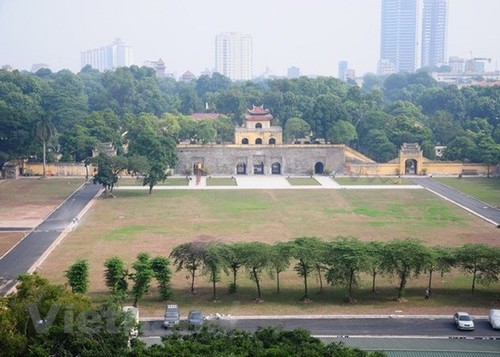 The Imperial Citadel of Thang Long. (Photo: VNA) The Imperial Citadel of Thang Long. (Photo: VNA) |
In 2002, the excavation of the Imperial Citadel of Thang Long was made on a total area of 19,000 sq.m at the centre of the Ba Dinh political area. The largest archaeological excavation in Vietnam and in Southeast Asia revealed traces of the Thang Long Imperial Citadel during its 1,000-year-old history, throughout the dynasties of Ly, Tran, Le, Mac and Nguyen (1010-1945).
In 2010, the Imperial Citadel of Thang Long was recognized by UNESCO as a World Cultural Heritage. Christian Manhart, UNESCO Representative in Vietnam, said there are few heritage sites in the world that show such long-term continuity as the Imperial Citadel of Thang Long. There are still many layers of its history underground.
A recent conference on the 20-year restoration and promotion of the Thang Long Imperial Citadel reported that the Vietnamese government has fulfilled 8 commitments to UNESCO related to this relic. Associate
“Throughout the years, various measures have been effectively taken to research, conserve, and develop the heritage of the Thang Long-Hanoi Imperial Citadel,” said Professor, Dr. Tran Duc Cuong, Chairman of the Vietnam Association of Historical Sciences.
Dr. Phan Thanh Hai, a member of the National Heritage Council, said: “Public awareness of preserving and promoting cultural heritage has improved. This is an important factor that encourages the preservation of cultural and historical values of the Imperial Citadel of Thang Long.”
According to scientists and experts, preservation and promotion of heritage is a long-term process which needs to be planned and implemented strategically. Professor Ueno Kunikazu from Nara Women’s University, Japan, said new issues are discovered each time as there are things that remain unclear about the historical evidence at the Thang Long Imperial Citadel.
Nguyen Thanh Quang, Director of the Thang Long Imperial Citadel Conservation Center, said a plan to manage the Thang Long Imperial Citadel in the 2021-2025 period with a vision to 2045 has been worked out.
“According to the orientation to 2030 and a vision to 2045, the Thang Long Imperial Citadel will become a significant venue in Hanoi. Municipal authorities will continue to preserve, renovate, and bring the values of this heritage into play,” said Quang.
 The centre of the Imperial Citadel of Thang Long. (Photo: VNA) The centre of the Imperial Citadel of Thang Long. (Photo: VNA) |
Lazare Eloundou Assomo, Director of the UNESCO World Heritage Centre, spoke highly of Hanoi’s authorities to effectively implement the promotion of the values of the Thang Long Imperial Citadel. He also suggested that there should be new steps taken to preserve and promote the relic’s unique values.
Vice Chairman of Hanoi’s People’s Committee Chu Xuan Dung said the research and achievements in the preservation of the Thang Long Imperial Citadel over the past 20 years will serve as firm foundation to develop it into a cultural and historical park, a relic site, and a safe destination in the capital city of Hanoi.